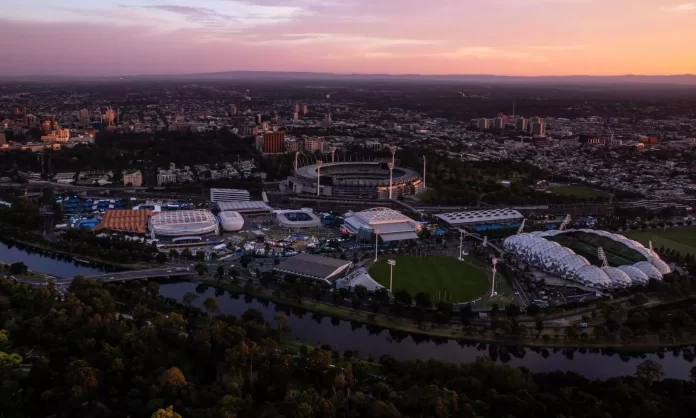In a stunning turn of events, the Australian state of Victoria has made the difficult decision to withdraw from hosting the highly anticipated 2026 Commonwealth Games. Citing exorbitant cost overruns, Premier Daniel Andrews expressed his concerns over the estimated budget, which had skyrocketed from an initial projection of 2.6 billion Australian dollars to a staggering 7 billion Australian dollars. The unforeseen financial burden has plunged the future of one of the world’s biggest sporting events into uncertainty.
The Commonwealth Games, a celebration of sport and camaraderie among 72 Commonwealth nations and territories, has witnessed its fair share of challenges in recent years. The 2022 edition held in Birmingham, England, proved to be the largest Games in history. However, the road to finding a suitable host for the 2026 event was arduous, with lack of interest and disruptive effects of the ongoing Covid-19 pandemic complicating matters.
To the dismay of the organizing committees, the decision to withdraw came as a surprise. They claim to have received no prior warning about the cost overruns nor an opportunity to explore alternative solutions. The Commonwealth Games Federation (CGF) expressed its disappointment, highlighting the lack of prior discussion to jointly address the situation and find a way forward.
The CGF statement further revealed that the cost estimate provided by Victorian authorities was significantly higher than the figure advised to the Organizing Committee board in June. It suggested that decisions made by the state concerning sports and venues had inflated expenses, often against the advice of the CGF and Commonwealth Games Australia (CGA). In response, CGA’s CEO Craig Phillips accused the government of willfully ignoring recommendations to relocate events to Melbourne, which would have helped reduce costs.
With Victoria’s withdrawal, the landscape of the 2026 Commonwealth Games has shifted dramatically. The sudden absence of one of Australia’s major states as host has left organizers scrambling for solutions. However, both the CGF and CGA remain committed to salvaging the event and exploring potential alternatives.
While regional Victoria was poised to showcase its splendor to the world, the state now plans to redirect its resources. The abandoned Games will make way for the construction of at least 1,300 affordable homes and permanent sporting facilities. This shift aims to boost regional tourism and events, providing an opportunity for growth and development in the aftermath of this setback.
As the Commonwealth Sport Movement grapples with the repercussions of this unexpected turn of events, the future of the 2026 Commonwealth Games hangs in the balance. Efforts are underway to find a viable solution that will allow this prestigious sporting spectacle to proceed, albeit with considerable challenges to overcome.
The decision by Victoria to withdraw from hosting duties has sparked debate and disappointment among sports enthusiasts and officials alike. The ramifications extend beyond the financial sphere, as the Games serve as a symbol of unity and athletic excellence for participating nations.
Only time will tell how the Commonwealth Games Federation and Commonwealth Games Australia will navigate this setback, making every effort to ensure that the Games will eventually find a new home and captivate audiences with the awe-inspiring performances of athletes from across the Commonwealth.





